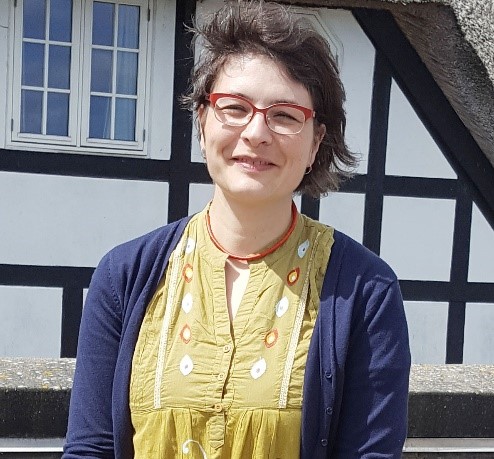Animal health and welfare as cornerstones of organic livestock production
The 12-13 June 2017 OrganicDairyHealth discussed how the results obtained in the project could enhance the European dimension of the best breeding strategies and management practices.

The overall aim of the project was obvious at OrganicDairyHealth’s third workshop: To improve animal health and welfare through breeding and management in organic dairy milk production with special emphasis on udder and metabolic health.
The outputs from the project are breeding strategies for commercial and local/native breeds, including crossbreeding strategies, and a demonstration of the potential of new management strategies to be implemented in different farm types for organic dairy production.
At the two-day workshop in Aarhus, Denmark, the outcome of the final stage of the project was presented. All key project participants in OrganicDairyHealth were invited to participate, and two experts were invited to give presentations on how the project results could be extended into a full European dimension.
Reflections on herd health management across Europe
 Isabel Blanco-Penedo, Spanish researcher at Department of Clinical Sciences SLU - Swedish University of Agricultural Sciences, was asked to reflect on how to make use of the results regarding herd health management across Europe. Isabel Blanco-Penedo pointed to the fact that, for the moment being, animal health status in organic dairy farming does not meet consumers’ expectations in all respect, and she stated that:
Isabel Blanco-Penedo, Spanish researcher at Department of Clinical Sciences SLU - Swedish University of Agricultural Sciences, was asked to reflect on how to make use of the results regarding herd health management across Europe. Isabel Blanco-Penedo pointed to the fact that, for the moment being, animal health status in organic dairy farming does not meet consumers’ expectations in all respect, and she stated that:
"Preventive strategies, earlier detection of diseases and treatments of diseased animals at an early stage are part of the leading ideas in organic livestock production, and are expected to result in more favorable clinical outcomes and less antibiotic usage… There is a clear need to identify the most effective and efficient measures on breeding, housing and management."
Isabel finds it very important to go into depth with farm typologies and characterise the basic structural features of farms; these characterisations from OrganicDairyHealth can be used for future analysis and to develop guidelines adjusted to specific farm conditions.
Another important aspect from Isabel to point out is that “production diseases emerge from a lack of capabilities and resources to adapt to situations caused by interactions between super-and subordinate living systems”. In other words, it is essential to focus on production diseases, because mastitis and udder health are linked to farming systems and management decisions - and thus related to the regulatory framework of organic production.
Isabel highlighted that the results from OrganicDairyHealth are very relevant for the organic framework; especially regarding stronger dependency on local fodder resources, higher share of pasture based feeding systems, less concentrate feeding and more restrictive regulations on medicine use. She looks forward to the see the results promoted in a European context in the end of the project.
Reflections on breeding management strategies across Europe

Sipke Joost Hiemstra, Program Director of the Centre for Genetic Resources, the Netherlands (CGN) at Wageningen UR, gave his reflection on how to enhance the results across Europe regarding breeding management strategies. Sipke began his presentation pointing to the EU Regulation 834/2007:
> “the choice of breeds should take into account their capacity to adapt to local conditions”
> “animals should not result from genetic engineering”
> “prevention of diseases by selection of suitable breeds....”
Sipke described the threats to local breeds in Europe, and stated that organic breeding combined with conservation of local/native breeds in OrganicDairyHealth is as a clear win-win situation. For organic livestock farming as well as for the sustainability of local//native breeds.
Main outcomes at this stage
Typical local/native and typical commercial breeds in Austria, Poland, Germany, Switzerland and Sweden have been identified. In each country the local/native breed has be described with reference to a relevant commercial breed.
Preliminary results shows that differences between local/native breeds and commercial breeds differ in different countries. In general lifetime production was higher in commercial breeds, but productive lifespan was higher in the local breed.
Farm types across participating member states have been identified and described based on a joint protocol. A database has been developed including herd information on 25 different organic farm types in Europe. The major farm types were identified in each country in a way that they represent the conditions under which the majority of milk is produced and number of cows is kept.
The number of major farm types identified per country was: Austria 5, Switzerland 2, Germany 4, Denmark 1, Lithuania 4, Poland 5 and Sweden 4. A questionnaire, including detailed questions in the areas of farm location, structure and size, housing and milking system, production level, animal health and management, feeding strategy, breeding and reproduction, was developed. Each partner country completed protocol information from at least 10 farms per farm type.
Scenarios for identifying relvant and efficient bereeding strategies in different European cointries are developed using crossbreeding and genomic selection.
Risk factors for stress and udder infections and alternatives to antibiotic treatment are being identified as well as other risk factors for mastitis and metabolic diseases in pasture-based organic dairy farms. This will contribute to efficient preventive management and handling strategies and thereby to improved udder and metabolic health and reduced use of medication in organic dairy herds without negative effects on animal welfare.
“Focusing on dairy cow health through a combined improvement of management and breeding provides a unique opportunity for improving societal trust in organic milk by maintenance of good health and welfare in systems with relatively low concentrate and medication use and high levels of grazing. Simultaneously this will help to improve productivity and cost efficiency. Our results will not only be basis for implementation in consortium countries but across Europe. I believe that our data will also be usefulin future research and development proejcts nationally and internationally…” Project coordinator OrganicDairyHealth, Jan Tind Sørensen.
About
OrganicDairyHealth is a CORE Organic Plus project, which is coordinated by International Centre for Research in Organic Food Systems, ICROFS.